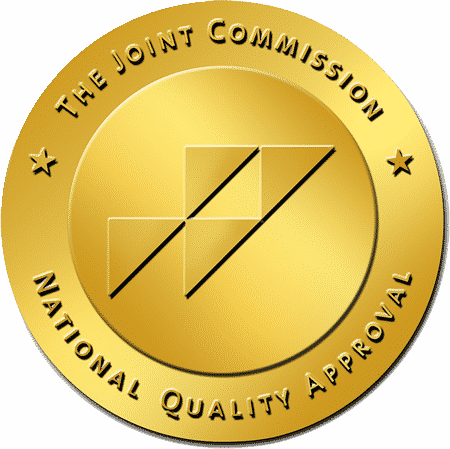Depression symptoms are often mistaken for just being sad but can go beyond emotional pain to physical and psychological symptoms. Because of the social stigma and the pressure to be a “real man,” the prevalence of any mental health issue, especially a diagnosis of a major depressive disorder, is still seen as taboo.
Seasonal Affective Disorder (SAD) is a type of depression that typically arises during the fall and winter months and affects men.
Men experience a range of signs that can be a part of depression, such as sleep disturbances, low libido, irritability, alcohol and drug misuse, and aggressive behaviors.
Talking about these symptoms is not easy, but it is important. Depression can cause suffering and is not a weakness or a passing mood. Keep reading to learn about depression symptoms that can seep into a man’s life and affect his health, relationships, and self-esteem.
The Hidden Struggle of Depression in Men

Male depression is complicated and different from sadness. For many men, to look at hidden layers of what is going on with them and address their emotional symptoms is hard. Aggression and physical pain are much more accessible to show than to talk about their inside feelings and thoughts.
The symptoms of depression in men can manifest in ways that are not immediately obvious, as the expression of emotional pain is far from the usual picture of depression. Irritability, not sadness, maybe the first sign of a man’s growing frustration and impatience with his inner turmoil.
Some men can also express depression by losing interest in activities that they used to love. The motivation to be social or to have a passion or drive to be at their best can quietly disappear and be replaced by an inexplicable disinterest or avoidance behavior that can puzzle loved ones.
What is Clinical Depression?
Clinical depression, also known as major depressive disorder (MDD), is a common but serious mood disorder that affects a person’s feelings, thoughts, and daily activities. Unlike temporary feelings of sadness or grief, clinical depression is a chronic condition that can persist for weeks, months, or even years if left untreated. It is characterized by persistent feelings of sadness, hopelessness, and a lack of interest in activities that were once enjoyed.
Clinical depression is a treatable mental health condition that can affect anyone, regardless of age, gender, or background. The symptoms of clinical depression can vary from person to person, but common symptoms include:
- Persistent feelings of sadness, emptiness, or hopelessness
- Loss of interest in activities that were once enjoyed
- Changes in appetite or sleep patterns
- Fatigue or loss of energy
- Difficulty concentrating or making decisions
- Physical symptoms such as headaches or digestive problems
If you or someone you know is experiencing these symptoms, it is essential to seek help from a mental health professional. With proper treatment, it is possible to manage symptoms and improve overall mental health. Addressing clinical depression early can prevent it from worsening and help individuals regain control over their lives.
Symptoms of Depression to Notice:
- Visible Emotional Symptoms
- Subtle Emotional Symptoms
- Tears, overt sadness
- Irritation, lack of patience
- Verbal expressions of despair
- Withdrawal from social interaction
- Lethargy, apparent apathy
- Loss of pleasure in preferred activities
What is treatment-resistant depression?
For those suffering from treatment-resistant depression (TRD), seeking effective treatment options like neurofeedback is crucial. Studies from the National Library of Medicine suggest that neurofeedback may serve as an effective augmentation treatment for patients grappling with TRD, addressing both depressive symptoms and functional recovery.
Anger and Male Depression

Anger is a socially acceptable outlet for men who are under psychological stress, and depression symptoms are transformed into anger and aggression. This not only hides underlying pain but also can hide traditional symptoms of depression like sadness, aggressive behavior, crying, irritability, verbal despair, and outbursts of anger.
Aggressive symptoms of depression in men are often blamed on personality or behavior rather than being seen as symptoms of a mood disorder. Healthcare providers with awareness and sensitive screening tools understand and can help get the diagnosis and best treatment options in place.
Changes in daily habits
Changes in daily habits can be a sign of depression that is more serious. A decline in personal hygiene or appearance, changes in appetite leading to weight loss or gain, and changes in sleep patterns such as sleep deprivation, or excessive sleeping can be a signs of a depressive episode.
Changes in cognitive functions are equally indicative of depression in men. It can manifest as a lack of focus, memory lapses or a noticeable decline in decision making.
Why Men Hide Their Feelings
Social norms in families and communities are often why many men choose to hide their emotions. The pressure to be a man perpetuates a lifestyle where showing vulnerability is seen as a sign of weakness and men are forced to put on a tough face even during emotional chaos.
The fear of social stigma and the loss of masculinity contributes to men’s desire to suppress feelings that are seen as not masculine. This often generational perception of pain not only stops men from seeking help but also stops the conversation about the possibility of depression.
Physical Symptoms and Somatic Signs of Depression in Men

While male depression often presents as emotions, it can also manifest physically.
Men struggling with mental illness often experience a range of somatic symptoms that don’t match the psychological symptoms. The exhaustion from untreated depression goes beyond tiredness, irregular sleep patterns, and strange changes in appetite and weight are often overlooked.
And the sudden onset of unexplained physical pain is a bodily manifestation of depression. These physical symptoms can be signs of a deeper depression in men and are key areas for early intervention and help.
When Fatigue Means More Than Tiredness
Fatigue, the exhausting kind that seeps into daily life, often hides the aspects of depression in men. Men may attribute tiredness to overwork or physical exertion and ignore the possibility that their chronic fatigue is a sign of an underlying mental health condition.
- Fatigue in male depression goes beyond the body’s cry for sleep after a long day; it’s a deep tiredness that hinders one’s ability to function and enjoy life.
- Understanding this fatigue requires attention to its subtleties – it’s a symptom that not only drains energy but also motivation and emotional resilience.
- More than just a byproduct of a busy life, this fatigue in men may mean a need for a professional evaluation to uncover what is going on.
As fatigue becomes a part of daily life, it points to a general loss of energy that may go unnoticed by friends, family, and even themselves. When the exhaustion is relentless and not relieved by rest, it’s time to consider depression as a possible cause that needs to be treated as seriously as any chronic condition.
How Substance Use is a Red Flag
The tendency to turn to alcohol or drugs as a coping mechanism is self-medicating, a common but dangerous way to temporarily fix symptoms of depression without professional help.
In men’s mental health, an increase in substance use or the onset of addiction can be a sign of an underlying mood disorder like depression. Healthcare professionals and loved ones must look out for these patterns of behavior as they may indicate the need for treatment that addresses the substance use disorder and the co-occurring emotional challenges the man is facing.
At La Hacienda we always screen for depression. Many who are abusing alcohol and drugs wonder which came first – major depression or addiction. Sometimes a person has both depression and a substance use disorder and other times the alcohol or drugs are just medicating depression. Once a person is completely sober, taking a thorough look at their depression if still there is vital to their ongoing recovery.
When a person seeks treatment for alcohol or drugs and is on depression medication, our medical doctors look at all components to ensure treatment plans are centered around a person’s history and psychiatric conditions. Active suicidal ideation requires a higher level of care than La Hacienda.
Suicidal Thoughts in Depressed Men

In uncovering the many symptoms of depression particular attention must be given to the scary possibility of suicidal thoughts in men. It happens quietly, without warning, through subtle verbal cues and changes in behavior. It is a red flag when a loved one or friend is at risk for suicide. Be on high alert when death becomes a topic of conversation or the main theme of their thoughts. Notice if they are giving away items that are treasured. These indicators may be silent but are important things to notice.
While women attempt suicide more often than men, men are more likely to complete the act.
When Do Men Need to Get Help for Depression?
Knowing when normal mood swings become a clinical concern can be tricky even for the most self-aware.
For men, this critical point – the moment when they need to get professional help for their mental health – is often shrouded by societal expectations and internalized stigma.
It’s important to know the signs that mean therapy, or a higher level of care is needed.
Prolonged emotional pain, reduced functioning in daily life or the development of unhealthy coping mechanisms like substance use are usually seen. The push to close the gap between silent suffering and active seeking of mental health support is a big step towards healing and balance.
What Are the Red Flags of Depression
Knowing when to seek professional help often depends on when personal coping mechanisms stop improving mental and emotional well-being. Men feeling helpless or completely disconnected from life’s joys may find these symptoms are the warning signs that it’s time to see a healthcare professional.
Seeking help may also be triggered by physical symptoms that come with emotional distress such as ongoing sleep disturbances, significant changes in appetite, or chronic pain without a medical cause.
When these symptoms interfere with daily life or add to existing stressors, reaching out for help is a big step towards recovery:
- Ongoing sleep disturbance, either insomnia or oversleeping
- Notable changes in eating habits resulting in weight loss or gain
- Unexplained physical aches and pains that last over time
Risk Factors for Depression in Men
Depression can affect anyone, but men are more likely to experience certain risk factors that can increase their likelihood of developing this common mental health condition. Understanding these risk factors can help in early detection and intervention. Some of the risk factors for depression in men include:
- Family History: Men with a family history of depression are more likely to experience depression themselves.
- Trauma: Men who have experienced trauma, such as physical or emotional abuse, are more likely to develop depression.
- Substance Abuse: Men who abuse substances, such as alcohol or drugs, are more likely to experience depression.
- Chronic Illness: Men with chronic illnesses, such as diabetes or heart disease, are more likely to experience depression.
- Social Isolation: Men who are socially isolated or have few social connections are more likely to experience depression.
- Work-Related Stress: Men who experience high levels of stress at work are more likely to develop depression.
In addition to these risk factors, men are also more likely to experience certain symptoms of depression, such as:
- Irritability or anger
- Aggression or violence
- Risk-taking behavior
- Physical symptoms such as headaches or digestive problems
It is helpful for men to be aware of these risk factors and to seek help if they are experiencing physical signs of depression. With proper treatment, it is possible to manage symptoms and improve overall mental health. Recognizing the signs early and addressing them with the help of a mental health professional can make a significant difference in the journey towards recovery.
Breaking Down Stigma to Get Mental Health Help

Facing the stigma around mental health is a big hurdle for many men, but knowing vulnerability is not a weakness is a big step. At La Hacienda, we believe and approach seeking help as bravery and self-awareness, not something that a person can just pull themselves up by their bootstraps.
Addressing clinical depression and mental health is a personal journey that starts with the understanding that seeking professional help may save your life. Seeking help from a doctor for a broken limb seems easier for some men than asking a person for help with their depression. Most mental health professionals acknowledge the strength to reach out and respond with kindness and understanding. Vulnerability is part of the human experience and doesn’t mean weakness.
Friends and Family
Friends and family are a key part of the support structure for depression detection and recovery. They are closest to the person, so they can see the subtle changes in mood and behavior that are invisible to the outside world. With some thought, these caring people can start conversations without judgment, creating a safety net that acknowledges the person’s experience and sidesteps the stereotypes.
Approaching this with care also reinforces the connection and acknowledges the shared responsibility in mental health awareness and healing within family and social circles.
How Loved Ones Can Spot Depression in Men
Loved ones are often the first to see the changes that may indicate depression in men. By paying attention to changes in mood, energy and interest they can raise concerns that would otherwise be hidden.
It’s their position that allows them to see the deviations from a man’s usual behavior: a decrease in socializing, unusual withdrawal, or loss of interest in activities he used to enjoy. These small changes in behavior are early warning signs that need to be explored and talked about.
How to Start a Conversation About Mental Health
Talking to a man about mental health when you suspect he’s depressed requires subtlety and compassion. It starts with creating a safe space, free of judgment where feelings can be expressed without shame or criticism. Frame the conversation around his wellbeing so friends and family can show concern not confrontation, a key to getting him to open up.
Do it with care and subtlety, and it can make all the difference. Friends and family ideally will offer a listening ear and a willingness to understand, not try to diagnose or fix the problem. By being confidential and supportive, they build trust, tell the person that seeking help is a sign of strength, not weakness, and guide them toward professional help.
Supporting Without Stereotyping
Supporting a man with depression means being mindful of perpetuating harmful stereotypes that equate emotional vulnerability with weakness. Loved ones and confidants need to walk a fine line, being empathetic and understanding without reinforcing the gender norms that tell men to bottle up their emotions.
By creating a space where men feel comfortable to talk about their mental health friends and family can say depression is a human experience that goes beyond gender. This creates a space where men can get the help they need and dismantle the stigmas and promote a culture of openness around mental health.
Help for Depression at La Hacienda Addiction Treatment Center
Although we have doctors who see patients daily and psychiatrists on staff, La Hacienda admits patients with a primary substance use disorder. We do treat co-occurring disorders like addiction and depression, however the primary diagnosis must be addiction.
Treating co-occurring disorders since 1972 we have learned that a person must get sober to truly understand the nature of their depression. Alcohol and drugs can mask the signs of depression and once that barrier is removed, proper diagnosis can occur.
If you or a loved one are depressed and wonder if your alcohol or drug abuse is a problem – please call us today.
Summary
Spotting depression in men is key to early detection and treatment.
Men show atypical symptoms like irritability, aggression, and a tough exterior which can hide their emotional pain. Physical changes in sleep, appetite, and unexplained pain are also signs. Friends and family are key to spotting these small changes and having supportive conversations without perpetuating harmful stereotypes.
Knowing these signs and getting men to seek help challenges the norms, breaks the stigma, and opens the way to healing and better mental health.
FAQ
How does a man act when he is depressed?
Men experience a range of signs that can be a part of depression, such as sleep disturbances, low libido, irritability, alcohol and drug misuse, and aggressive behaviors.
What are the signs of a depressive episode?
A decline in personal hygiene or appearance, changes in appetite leading to weight loss or gain, and changes in sleep patterns such as sleep deprivation, or excessive sleeping can be a signs of a depressive episode.
What are the signs someone is thinking about suicide?
Be on high alert when death becomes a topic of conversation or the main theme of their thoughts. Notice if they are giving away treasured items. These indicators may be silent, but they are important things to notice.
Sources:
https://www.mayoclinic.org/diseases-conditions/depression/in-depth/male-depression/art-20046216
https://www.nimh.nih.gov/health/topics/depression






